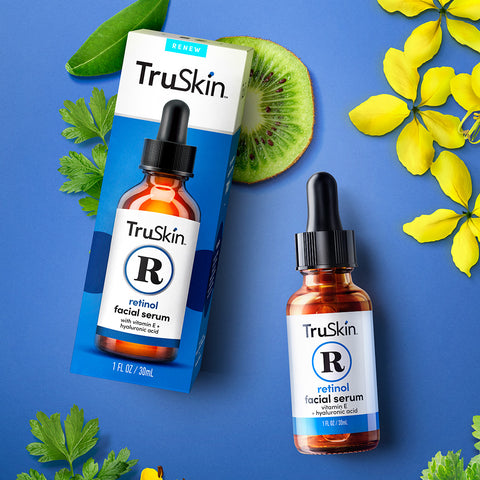
How To Turn Stressed Skin Into Your Best Skin
Stress = irritation, which is one of the worst things for your skin. Let’s see what we can do to help turn stressed skin into your best skin ever.
Your skin is the largest organ in your body, so it’s no wonder what you see on the outside reflects exactly what’s going on inside. When you’re rested and bursting with energy, for example, your skin often reflects that. And, ps, can we have a group hug for those rare but joyous days, please?!
Similarly, when you’re super tired, anxious and emotionally drained, your skin is likely to react in the same way, looking dull, feeling rough and, frankly, being a bit of a stressed mess.
But why does stress and emotional anxiety affect the skin in such a major way? Well, when you feel stressed about something, your brain prepares your body to go into fight or flight mode. In doing so, your nervous system releases hormones like cortisol and adrenaline into the bloodstream which nudges your heart to beat faster, your breath to speed up and your muscles to tense up. All this is great in short-lived stressful situations like job interviews or when dealing with a threat or emergency. But when stress becomes more the norm than a rarity, these hormones go into constant overdrive and things start to go awry. Headaches and nausea can kick in, your digestive system becomes compromised and, in extremely chronic cases, you may even increase your risk of a heart attack or stroke.
And then there’s your skin.
Various studies show that both acute (temporary) and chronic (consistent) stress create negative effects on the health of your skin. For starters, spikes in cortisol increase inflammation and cause your sebaceous glands to go wild, encouraging them to produce way too much oil than your skin really needs (cue breakouts!). An overload of cortisol also breaks down vital collagen supplies, decreases hydrating hyaluronic acid, upsets the balance of your skin’s barrier function and messes up its pH levels. All of these things equal bad news for the health of your skin, resulting in any number of skin annoyances such as blocked pores, acne, dehydration, irritation and flare-ups in existing conditions like rosacea, psoriasis or eczema.
And the worst thing of all? Cruddy, stress-induced skin is, well, stressful in itself. Which doesn’t help your emotional well-being one tiny bit. Sigh.
The good news is there are many ways to improve our skin when stress is hitting you hard. To follow, seven of our tried and tested favorites…
1. De-Stress With A Journal
Before you start working on your skin, you need to concentrate on your entire health and well-being. And the best way to do this? Make a note of any habits or experiences that make you stressed or uneasy. Write down how they made you feel, how you reacted to them and what, if anything, you did to make yourself feel better. This allows you to notice themes or patterns in your stress levels, as well as ways to improve your mood and help you relax.
2. Sleep like A Queen
Like all skin experts, we’re big believers in the power of a great night’s sleep. In terms of stress, this is because cortisol levels dramatically drop when you’re asleep. So, if you deprive yourself of valuable zzzs your skin misses out on this important time of repair and rejuvenation during which collagen production accelerates, cell turnover speeds up, blood flow increases, muscles relax and antioxidants kick in to repair damage caused during the day.
The Mayo Clinic recommends at least seven hours of quality sleep every night but the most important thing is to go to bed and get up at roughly the same time to get into a good routine. Ensure your bedroom is dark, quiet, not too warm and limit caffeine, food and your smartphone for at least two hours before you hit the sack.
3. Dial Down Your Actives
Active ingredients like retinol, vitamin C and glycolic acid are all well and good when your skin’s barrier function is working like clockwork. But when stress upsets its delicate nature, your skin’s ability to heal and repair itself becomes compromised. This is when an overload of actives can be too much for your skin to deal with. Cut back for a while and allow your barrier function to rebuild itself. If you usually exfoliate every other day, for example, switch to once or twice a week. Love to apply your Retinol Facial Serum every night? Reduce this to every other night for a short period of time, or try alternating it with our soothing Niacinamide Facial Serum which is perfect for sensitized skin.
Trust us, giving your skin a break is super important during times of stress.
4. Avoid ‘Triggering’ Skincare Ingredients
We recommend avoiding the most common skincare nasties ALL of the time, but it’s even more important during times of emotional and mental stress when your barrier function might not be working to the best of its abilities.
Keep your routine straightforward, simple and steer clear of sulfates, in particular, which are excellent at cleansing, but can exacerbate dryness, itching, redness and breakouts – especially if your skin is feeling stressed out.
Gentle cleansers that contain non-drying surfactants like disodium lauryl sulfosuccinate and disodium 2-sulfolaurate are a far better choice and ideal for sensitized skin. Try our Vitamin C Brightening Cleanser which also contains nourishing rose hip oil to help reduce inflammation and redness.
5. Save New Skincare Products For Another Time
Sure, we all love to try out a brand new product every now and again but now’s not the time to introduce a newbie to your daily routine. Stressed skin is more reactive which means ingredients that usually feel great may bother you more than normal.
Stick to what you know for now and save the new stuff for later.
6. Enjoy A Cup Of Tea
Research shows that drinking black tea helps lower the levels of cortisol in your bloodstream, making you feel more relaxed and positive. It’s even been suggested that the simple act of making tea alone is enough to help soothe stress and anxiety.
The reason black (as well as green) tea is thought to be such a mood booster is mainly down to l-theanine, an amino acid that helps promotes relaxation, counteracts anxiety, reduces fatigue and supports thinking.
7. Finally, Give Yourself A Break
Everyone goes through stressful periods in their lives and it’s perfectly normal for things to get on top of you every now and again. But try not to allow your stress to get the better of you as this will result in a vicious circle for both your health and your skin – and that can be hard to shake off. Practice deep breathing throughout the day to center yourself, go for a quick walk to clear your head, or read a book for ten minutes in the afternoon to take your mind off things.
These healthy habits are awesome for lifting your emotional health and maintaining stronger, radiant skin. Period.
















